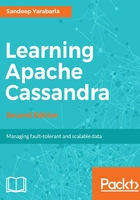
Efficient result ordering
It's quite common to want to retrieve a record set ordered by a particular field; for instance, a photo-sharing service will want to retrieve the most recent photographs in descending order of creation. Since sorting data on the fly is a fundamentally expensive operation, databases must keep information about record ordering persisted on disk in order to efficiently return results in order. In a relational database, this is one of the jobs of a secondary index.
In Cassandra, secondary indexes can't be used for result ordering, but tables can be structured such that rows are always kept sorted by a given column or columns, called clustering columns. Sorting by arbitrary columns at read time is not possible, but the capacity to efficiently order records in any way and to retrieve ranges of records based on this ordering is an unusually powerful capability for a distributed database.